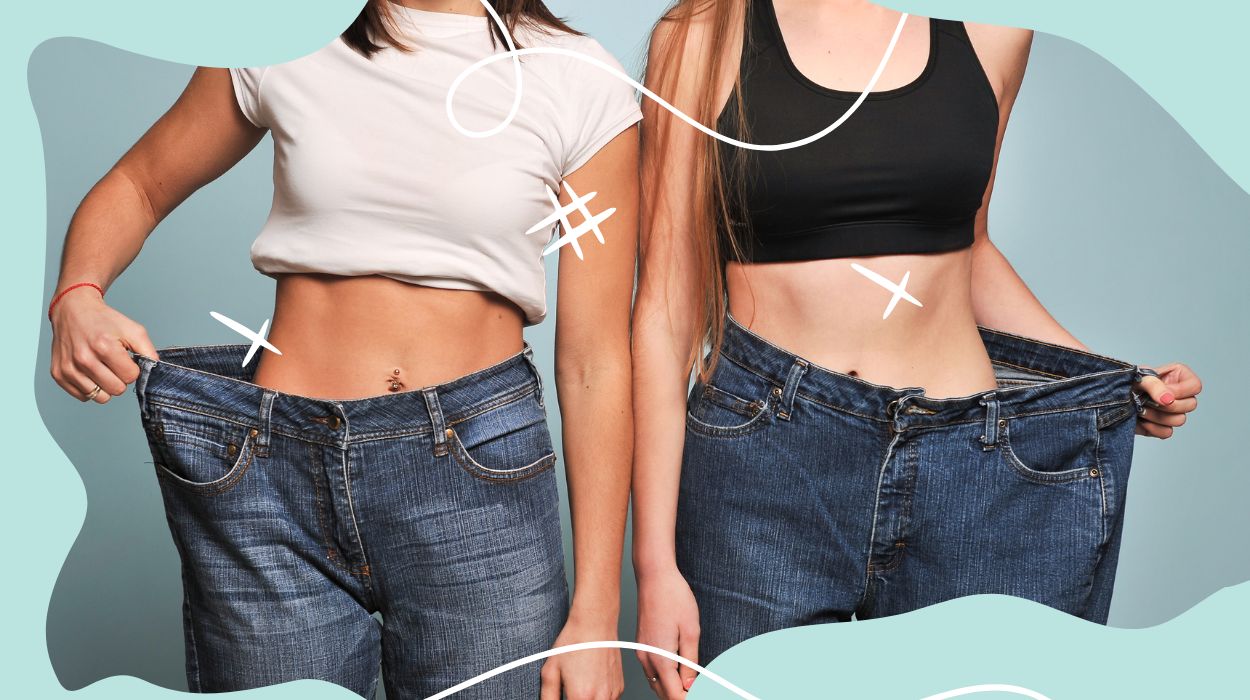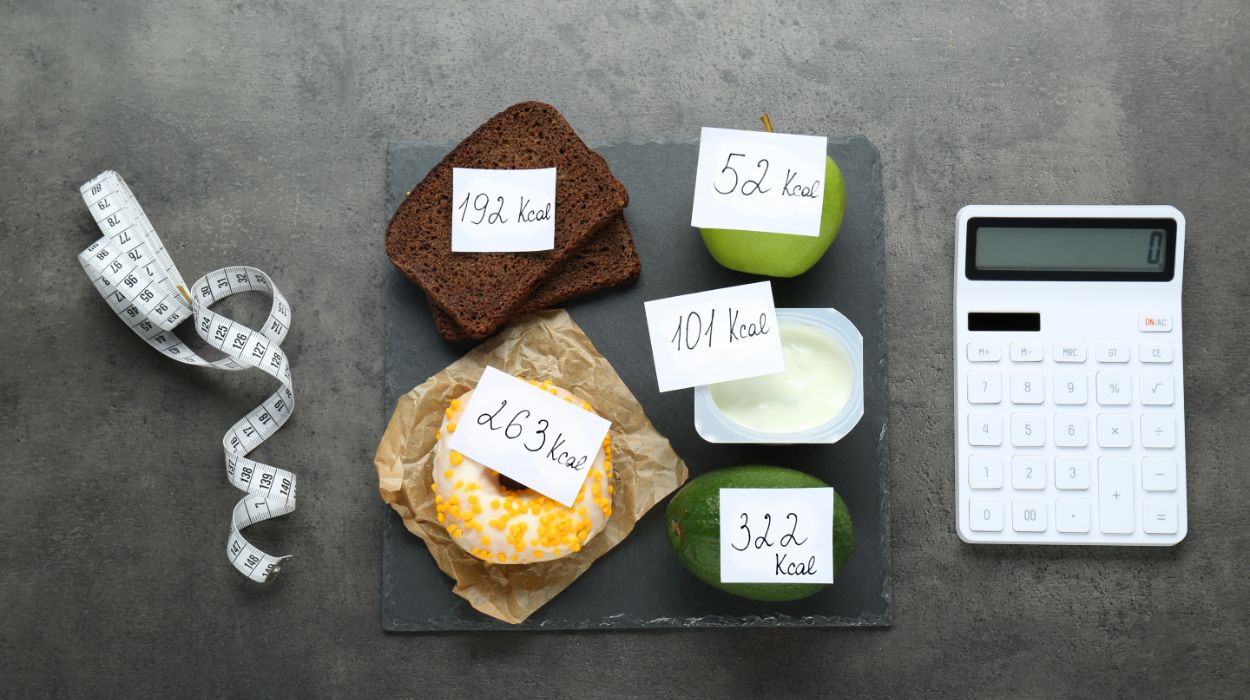 Expert's opinion
Expert's opinion
Expert's opinion
The article is a subjective view on this topic written by writers specializing in medical writing.
It may reflect on a personal journey surrounding struggles with an illness or medical condition, involve product comparisons, diet considerations, or other health-related opinions.
Although the view is entirely that of the writer, it is based on academic experiences and scientific research they have conducted; it is fact-checked by a team of degreed medical experts, and validated by sources attached to the article.
The numbers in parenthesis (1,2,3) will take you to clickable links to related scientific papers.
How Many Calories Should I Eat To Lose Weight 2024?

Losing weight isn’t always easy. The good news: if you’re able to burn more calories than you take in every day, you’re already on the road to success.
The only way to know where you stand is through calorie counting fortunately, it’s really easy to track your calories consumed daily through a food journal. Apps like MyFitnessPal and Chronometer both offer you a huge library of foods and their macronutrient and micronutrient content, which can make things significantly easier.
Here are some of our top tips on using the power of calories to meet your own expectations. A slimmer waistline doesn’t take much, and you can get started today.
How Many Calories To Eat To Lose Weight?
Objectively speaking, the only way to lose weight is through the balance of calorie intake vs. caloric expenditure. How many calories can I eat to lose weight? In a general sense, a diet that contains a healthy amount of calories per day from 1,000 to 1,500[1] can be considered to be a reasonably low-calorie diet, depending on one’s lifestyle and activity levels. Maintaining a calorie deficit of at least 500 to 750 calories per day is considered by many to be a great avenue for sustainable weight loss and weight management.

What Are Calories?
In short, calories are a unit of measurement[2] that quantifies the amount of convertible energy that a given food or beverage contains. The textbook definition is the amount of potential chemical energy that it takes to elevate the temperature of one gram of pure water by one degree Celsius under ordinary atmospheric conditions.
One single calorie on a food label is actually something called a “kilocalorie”—in places like the UK, labels actually use an analogous term, “kilojoules,” instead of what our system uses.
The body itself runs on adenosine triphosphate (ATP), which is a byproduct of the digestion process. It’s broken down at the cellular level by way of hydrolysis after being synthesized and acts as the energy “currency” of all cellular activity. This, essentially, is how our bodies “eat” calories.
Are Calories Good For You To Achieve Your Weight Loss Goal?
If losing weight is your goal, you’ll need to maintain a daily calorie deficit. What does this mean, exactly?
A person’s daily energy balance[3] compares the number of calories taken in on a given day to their calorie expenditure—the calories burned by physical activity, one’s metabolic activity, and other things like cellular repair and combatting illness. There are many, many ways[4] to achieve a caloric deficit, but, unless you’re able to tip the scales in this way, you won’t lose weight no matter how much intense exercise you can commit to.
Weight gain occurs when our daily calories taken exceed what we expend through any of the above. A sedentary lifestyle and a diet that includes many high-calorie foods both make a person much more likely to gain weight over time.
Should You Count Calories?
You might be asking: how many calories should I eat a day? Unless you’re counting them, this question will be difficult to answer.
If weight loss and weight maintenance are your ultimate goal, counting calories is probably the best place to start. Sometimes, it can be easy to take excess calories in, even if you adhere to a reasonably healthy diet ordinarily. Things like salad dressing, coffee creamer, and caloric condiments like ketchup can all add up quickly, spoiling your otherwise balanced diet.
With that being said, it can be easy to get lost in the numbers. If you’re already quite thin, you should instead choose a more active lifestyle over restricting your intake further a new cycling hobby or a yoga routine can help you maintain a healthy weight without depriving yourself of the healthy foods your body needs to function.
Mostly, calorie counting is useful because it gives you a solid understanding of your nutritional profile on average. If you are carrying excess body weight, you’ll be able to see where you can cut back and sub in healthy alternatives cauliflower rice, calorie-free sweeteners, and other weight loss aids that might get you ahead.
How To Reduce Calorie Intake?
Self-monitoring, self-assessment, and accountability for everything you put on your plate will all be facilitated by counting calories and documenting what you eat. Once you know what needs to change, what are the best ways to meet your weight loss goals?
Cut The Junk
Even taking one indulgence off the table a day might be enough to make a big difference. Removing junk food from your diet entirely might even be able to help you reduce cravings[5] and instead seek other treats ideally, ones with less fat and less added sugar.
Make Food At Home

On that note: cooking as many meals as you can at home is the best way to control exactly what you’re putting into your body. It gives you the opportunity to recreate what you’re craving with healthy fats, complex carbs, and whole grains think about the difference between a Cinnabon and a similar treat made in your own kitchen. Influencers like The Minimalist Baker offer thousands of healthy recipes on their blogs, often using vegan, whole foods as the star ingredients. Medjool dates, for example, can often be used as a sweetener instead of white sugar.
Choose High-Volume, Low-Calorie Foods
Big salads, veggie roasts, hearty, plant-based soups, and the like can help you feel fuller without taking on extra calories. Cauliflower pizza and riced cauliflower are two popular, low-carb alternatives, as is using lettuce in lieu of something like a hamburger bun. Often, you’ll be able to satisfy food cravings for things like noodles or pasta with alternatives like shirataki noodles, which are zero-calorie and very filling.
Eating More Mindfully
Avoid vegging on your phone or watching TV when you eat—engaging with your food and even making an effort to feel gratitude for it not only makes you more likely to process it more thoroughly but may also slow you down and prevent you from exceeding[6] your intended caloric intake.
Aside from these tips on your daily calorie intake, we can always recommend more physical activity as another tool in your arsenal. Staying fit can help you tackle your calorie intake and will also help you prevent muscle loss while building lean body mass. Diet pills may also be able to help you close the gap, so to speak.
Final Thought
Is fewer calories always the answer? It’s definitely one of the first steps toward improving your appearance, body composition, and health overall. If you don’t want to gain weight, watching your calorie intake is the best way to maintain and craft a leaner figure.
+ 6 sources
Health Canal avoids using tertiary references. We have strict sourcing guidelines and rely on peer-reviewed studies, academic researches from medical associations and institutions. To ensure the accuracy of articles in Health Canal, you can read more about the editorial process here
- Kim, J.-Y. (2021). Optimal Diet Strategies for Weight Loss and Weight Loss Maintenance. [online] 30(1), pp.20–31. doi:https://doi.org/10.7570/jomes20065.
- Osilla, E.V., Safadi, A.O. and Sharma, S. (2022). Calories. [online] Nih.gov. Available at: https://www.ncbi.nlm.nih.gov/books/NBK499909/.
- Council, R. (2023). Calories: Total Macronutrient Intake, Energy Expenditure, and Net Energy Stores. [online] Nih.gov. Available at: https://www.ncbi.nlm.nih.gov/books/NBK218769/.
- US), M. (2023). Weight-Loss and Maintenance Strategies. [online] Nih.gov. Available at: https://www.ncbi.nlm.nih.gov/books/NBK221839/ .
- Apolzan, J.W., Myers, C.A., Champagne, C.M., Beyl, R.A., Raynor, H.A., Anton, S.D., Williamson, D.A., Sacks, F.M., Bray, G.A. and Martin, C.K. (2017). Frequency of Consuming Foods Predicts Changes in Cravings for Those Foods During Weight Loss: The POUNDS Lost Study. [online] 25(8), pp.1343–1348. doi:https://doi.org/10.1002/oby.21895.
- Simonson, A.C., Davis, K.K., Bethany Barone Gibbs, Venditti, E.M. and Jakicic, J.M. (2020). Comparison of mindful and slow eating strategies on acute energy intake. [online] 6(6), pp.668–676. doi:https://doi.org/10.1002/osp4.441.



